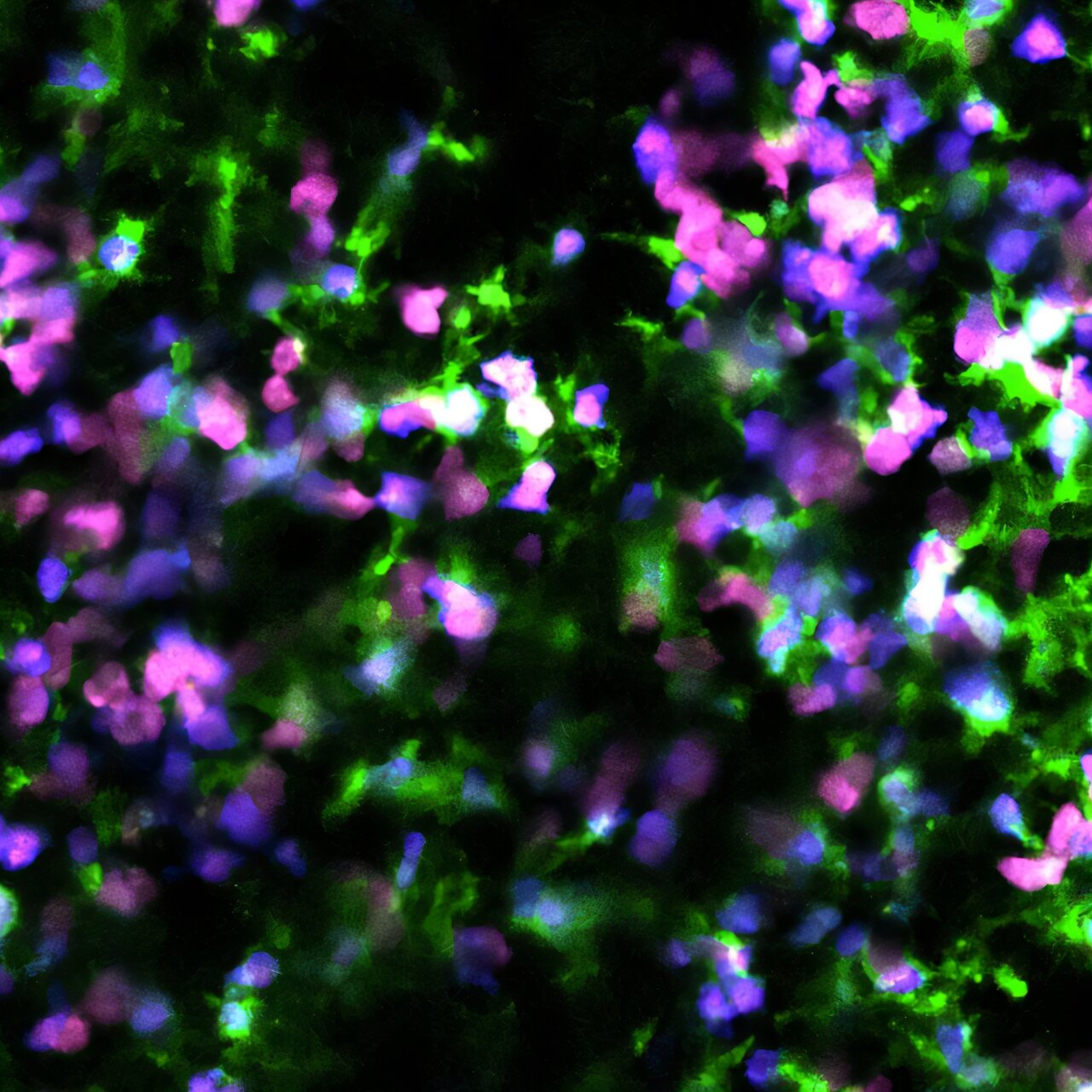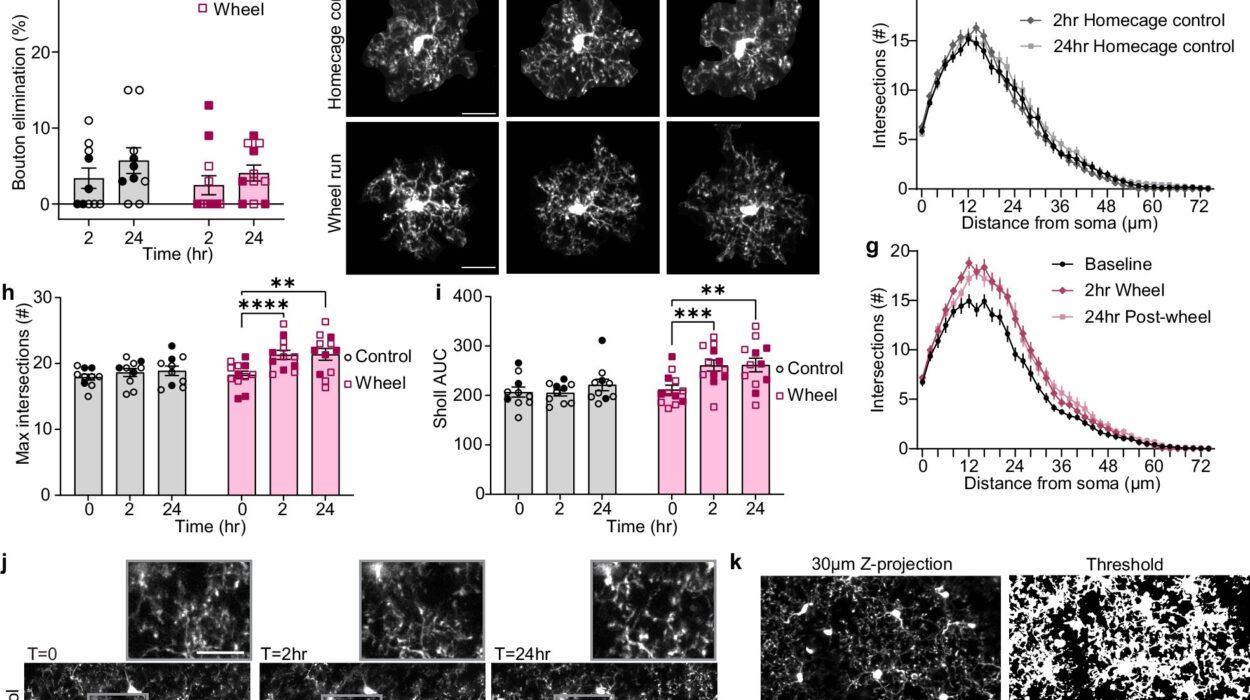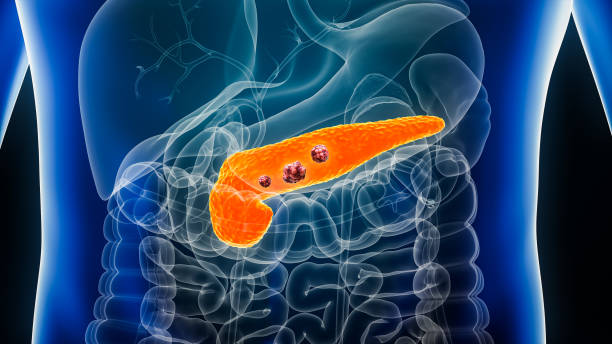Cancer is a master of deception. It disguises itself as part of the body, hiding from the immune system that should destroy it. For decades, scientists have struggled to outsmart this enemy — to find ways to turn the body’s natural defenses back against the disease that grows from within. In recent years, a revolutionary approach known as immunotherapy has transformed the landscape of cancer treatment, offering something that chemotherapy and radiation never could: a way to train the immune system to recognize, remember, and attack cancer cells like it would a virus or an invading bacterium.
Now, scientists at the Institut Pasteur and Inserm have taken this concept one step further. By reprogramming how malignant B cells — the culprits in several forms of blood cancer — die, they have discovered a way to turn cancer’s own destruction into a call for immune reinforcements. Their groundbreaking study, published in Science Advances on August 15, reveals a promising “triple-therapy” approach that could transform treatment for B-cell lymphomas and leukemias.
Turning Death Into a Weapon
To understand why this discovery is so remarkable, it helps to know that not all cell deaths are the same. When healthy cells die, they often do so quietly, through a process called apoptosis — a kind of biological self-cleaning mechanism. In apoptosis, the cell neatly dismantles itself without causing alarm, allowing the body to recycle its components without inflammation or immune activation.
Cancer cells, however, can exploit this process. When killed by chemotherapy, they often die silently, leaving the immune system unaware of the danger that remains. But there is another, more dramatic form of cell death — necroptosis. Unlike apoptosis, necroptosis is loud and messy. When a cell undergoes necroptosis, it bursts open, releasing a storm of molecular “danger signals” that alert and activate immune cells nearby. These immune sentinels then rush to the scene, attacking any remaining cancer cells and preventing relapse.
The research team from the Institut Pasteur and Inserm realized that if they could force cancer cells to die by necroptosis instead of apoptosis, they could effectively turn every dying cancer cell into a beacon — a signal flare calling the immune system to arms.
The Challenge of Reprogramming Cancer Cells
While the idea was elegant, implementing it was far from simple. When the scientists examined malignant B cells from leukemia and lymphoma models, they discovered that these cells lacked a critical protein called MLKL. This protein acts as the molecular executioner of necroptosis — without it, the pathway simply doesn’t work.
In other words, B-cell cancers had evolved a clever form of resistance: by losing MLKL, they became immune to this inflammatory death. The team faced a formidable question — could they find a way to restore or mimic this process to make necroptosis possible again?
The Power of a Triple-Therapy Approach
The researchers turned to three drugs already known and approved for clinical use. While each drug on its own had limited effect, combining them created something extraordinary. Together, they reactivated the necroptotic machinery within the malignant cells, effectively reprogramming how these cells met their end.
In preclinical models, the triple therapy induced necroptosis successfully. What happened next was even more striking — the immune system sprang to life. Immune cells flooded the area, recognizing the dying tumor cells as threats and attacking any remaining cancerous cells nearby.
The result was astonishing: the complete elimination of leukemia in experimental models.
As Dr. Philippe Bousso, the study’s lead author and Director of the Dynamics of Immune Responses Unit at the Institut Pasteur, explained, “The triple therapy we used forces cancer cells to die in a way that activates the immune system.” In other words, the therapy doesn’t just kill cancer cells — it teaches the immune system how to finish the job.
Seeing the Battle in Real Time
One of the most innovative aspects of this research lies not just in what the scientists achieved, but in how they observed it. Using advanced intravital imaging — a technique that allows scientists to watch live biological processes within living organisms — the team was able to visualize the dynamic interactions between immune cells and cancer cells as necroptosis unfolded.
They could literally see the immune system responding in real time, tracking how necroptotic cell death acted as a signal for immune activation. This unprecedented level of observation confirmed what had long been theorized but rarely visualized so vividly: that the way cancer cells die fundamentally determines how the immune system reacts afterward.
A New Era in Immunotherapy
Immunotherapy has already changed the face of oncology. Treatments such as immune checkpoint inhibitors, CAR-T cell therapies, and cancer vaccines have saved lives once thought beyond help. Yet, many forms of cancer remain resistant, and relapses are common. The approach pioneered by the Institut Pasteur and Inserm team offers a potential new pathway — not just to kill cancer cells, but to enlist the body’s defenses in a lasting and self-sustaining way.
What sets this strategy apart is its simplicity and accessibility. The triple-therapy method uses drugs that are already clinically approved, meaning that its transition to human trials could be relatively swift. If future studies confirm its effectiveness in people, this could lead to new treatments for lymphomas and leukemias — diseases that often recur after initial therapy.
Dr. Bousso explains, “This novel immunotherapy strategy turns tumor cells into triggers for the immune system, pointing to a potential therapeutic avenue for certain cancers.” By altering the death process of cancer cells, the immune system is no longer a passive observer — it becomes an active participant in the fight.
The Promise and Responsibility Ahead
Every major leap in medicine brings with it both excitement and caution. While the results in preclinical models are extraordinary, much remains to be done before this triple therapy can be tested and applied in patients. Scientists will need to study potential side effects, dosing, and whether similar success can be replicated in the complex environment of the human body.
But the underlying principle — that the way cancer cells die can dictate the body’s immune response — is a profound shift in perspective. It reframes cancer treatment not as a battle to destroy tumors by brute force, but as a conversation between dying cells and the immune system. By guiding that conversation, we may finally learn to turn cancer’s strength — its silence — into its downfall.
Hope at the Cellular Level
For patients with blood cancers like lymphoma and leukemia, this research offers something even more valuable than innovation: hope. Traditional treatments can be harsh and uncertain, often requiring bone marrow transplants, prolonged chemotherapy, or targeted drugs that eventually lose effectiveness. Immunotherapy, particularly approaches like this one, holds the promise of treatments that not only eradicate tumors but also prevent them from returning.
Imagine a therapy that doesn’t just destroy cancer but teaches the body to remember it, to recognize it if it ever tries to return. That’s the ultimate goal — a lasting immunity to cancer itself.
Reimagining Cancer Death as Life’s Ally
In the end, this story is about reimagining death — not as an end, but as a transformation. By changing how cancer cells die, scientists are learning to turn their final act into a message of alarm and empowerment. Necroptosis, once seen merely as a destructive process, becomes a vital form of communication, one that awakens the body’s most powerful defenders.
“By changing the way cancer cells die,” Dr. Bousso concludes, “we can harness the support of our immune system to fight against the tumor.”
This is not just a scientific breakthrough — it’s a philosophical one. Life and death, even at the microscopic level, are deeply intertwined. In teaching death to speak, science is giving life a stronger voice — one that may one day silence cancer’s whisper forever.
More information: Ruby Alonso et al, Reprogramming RIPK3-induced cell death in malignant B cells promotes immune-mediated tumor control, Science Advances (2025). DOI: 10.1126/sciadv.adv0871






